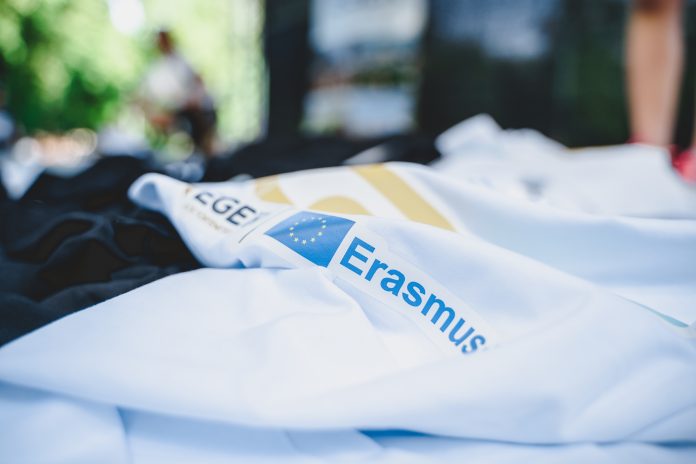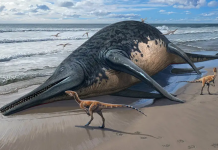Open Access Government provides an update on the policies of Mariya Gabriel, European Commissioner for Innovation, Research, Culture, Education and Youth
European Commissioner for Innovation, Research, Culture, Education and Youth, Mariya Gabriel is responsible for bolstering international cooperation in the policy areas of research, education, innovation and culture plus much more (1). Erasmus+ illustrates this
aspect of her remit well, with about 44 European Universities cooperating across disciplines and borders. With unprecedented funding of €272 million, 16 existing Universities in Europe will still receive support, and four new alliances can commence cooperation. Along with the 24 alliances selected in 2020, that’s a total of 44 European Universities, including 340 higher education institutions in remote regions, and capital cities in 31 countries.
Commissioner Gabriel states this news heralds a further step toward achieving the Commission’s vision for the higher education sector in Europe. “Campuses that span between universities and cross borders and disciplines, where students, staff and researchers from all parts of Europe can enjoy seamless mobility, and create new knowledge together. I am proud that we are able to provide higher and more long-term funding for the alliances with the Erasmus+ programme, and also that we have ensured an inclusive approach, giving opportunities to higher education institutions to join existing alliances or to form new ones” (2).
New wave of deep tech innovation & start-ups
In early July, the Commission heralded the New European Innovation Agenda to place Europe at the forefront of the new wave of start-ups and deep tech innovation. Not only will Europe be helped to develop new technologies for pressing societal challenges, and bring them to market, but the Agenda aims to position Europe as a key player on the innovation scene globally (3). This is in keeping with another responsibility of Commissioner Gabriel – to ensure investment flows for breakthrough innovations (1).
Deep tech innovation will reinforce the technological leadership of Europe and provide innovative solutions to urgent societal challenges, like cyberthreats and climate change. Such innovations should “irrigate and benefit all sectors from renewable energy to agri-tech, from construction to mobility and health, thereby tackling food security, reducing energy dependency, improving people’s health and making our economies more competitive,” the Commission says.
Commissioner Gabriel comments on this update about innovation policy: “The new European Innovation Agenda will ensure innovators, start-ups and scale-ups, their innovative businesses to become global innovation leaders. For more than a year we have
consulted the stakeholders, such as innovation ecosystem leaders, startups, unicorns, women founders, women working in the capital venture, universities, and businesses. Together, we will make Europe the global powerhouse for deep-tech innovations and startups” (3).
Cultural heritage climate change impact
More recently, the Commission published a report about making cultural heritage resilience stronger to protect it from climate change impact. In the report, we learn that climate change, directly and indirectly, threatens all forms of cultural heritage, through severe
precipitation, droughts, strong winds, long heatwaves and a rise in sea-level – all of which are predicted to increase in the years ahead.
Commissioner Gabriel provides more detail on this report, where an expert group made ten recommendations to help to strengthen cultural heritage resilience to climate change. “Protecting all types of cultural heritage from climate change is a wide challenge that we are taking on. This concerns archaeological sites and built heritage just as much as landscapes and movable heritage: we have to find an integrated approach that protects heritage qualities. The large number of countries that took part in the expert group is proof
that this topic gains increasingly more importance and that there is a potential for cooperation, identification of gaps and exchange of best practices at European level” (4).
EU’s performance in innovation
Finally, did you know that the Commission’s publication of the 2022 edition of the Science,
Research and Innovation Performance (SRIP) report examines the EU’s performance in innovation as part of the wider global picture? That the report suggests five ways how science can help build a sustainable, resilient and competitive Europe, for example, with
policies that invest more in people, institutions and businesses and seek solutions? And that in the global landscape, the EU remains a strong player in terms of technological output and scientific production?
Let’s leave the last word to Commissioner Gabriel, who paints a positive picture of why research and innovation are integral to Europe’s future. “The 2022 Science, Research and Innovation Performance report shows how research and innovation are central to building the sustainable and resilient future that Europe needs. The digital and green transitions simply cannot be accomplished without strong research and innovation systems” (5).
References
1. https://ec.europa.eu/commission/commissioners/2019-2024/gabriel_en
2. https://ec.europa.eu/commission/presscorner/detail/en/IP_22_4702
3. https://ec.europa.eu/commission/presscorner/detail/en/IP_22_4273
4. https://ec.europa.eu/commission/presscorner/detail/en/IP_22_5353
5. https://ec.europa.eu/commission/presscorner/detail/en/IP_22_4255
Contributor Details
Editor's Recommended Articles
-
Must Read >> European innovation potential knows no bounds
-
Must Read >> Europe invests in people and innovation















